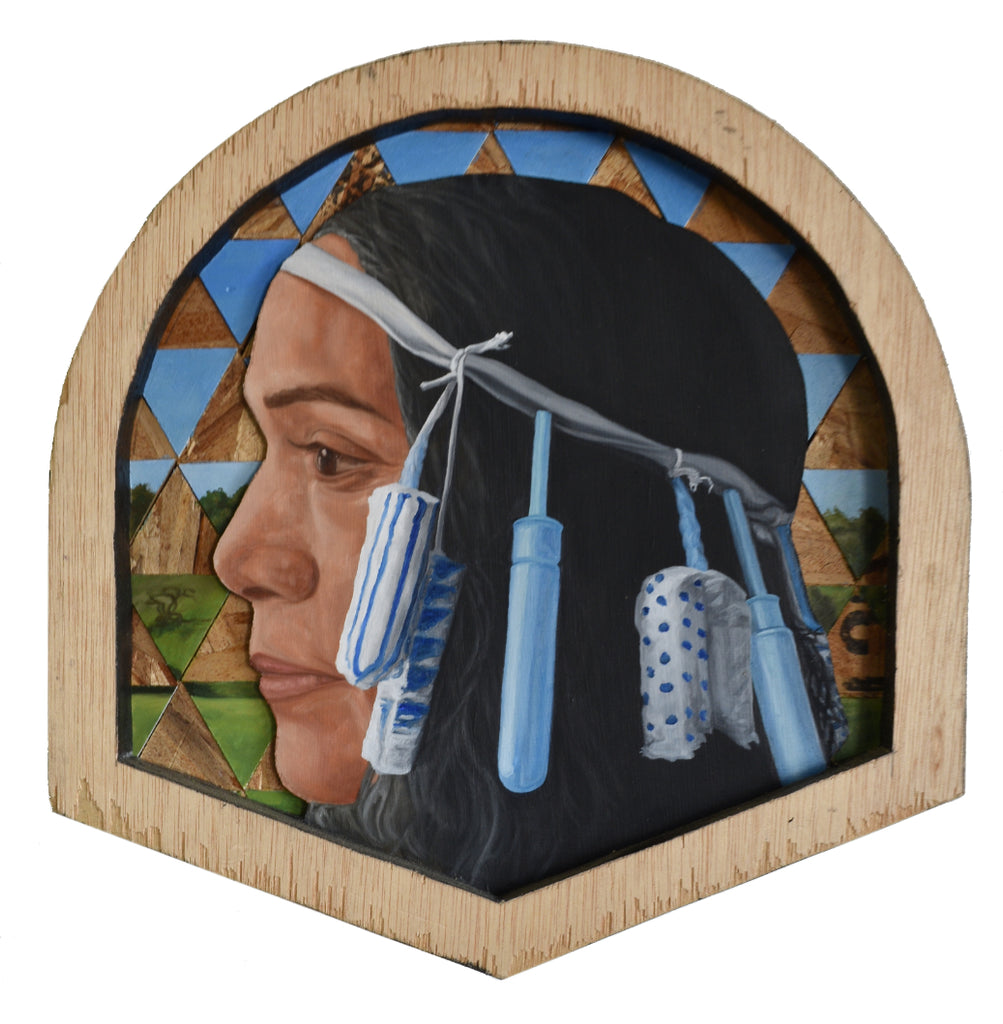Spoke Art gallery is excited to announce First World Cargo Cult, our upcoming solo exhibition by Oakland-based artist and beloved gallery friend Peter Adamyan! This new collection is inspired by the burden of cargo and mass-production, examined through the lens of colonialism, indigenous spirituality, and environmental decay. As always, Adamyan’s clever brand of irony ridicules the selfishness, greed, and corruption of Man as he turns his back on Mother Nature.
Please join us on Saturday, December 5th at 2 pm Pacific for a
livestream on the
Spoke Art instagram, where we'll be virtually joined by the artist for a live Q&A and walkthrough of the show.
First World Cargo Cult will be on view Saturday, December 5th through Saturday, December 26th at our sister gallery,
Recess. Due to the pandemic, the gallery will be
open by appointment only.
To review our in-person safety measures and schedule a viewing appointment, click HERE.
To request an advance collector preview, please email info@spoke-art.com.
On View: December 5th - 26th, 2020
At: Recess Gallery, 816 Sutter Street, San Francisco, CA 94109 (Spoke Art’s old brick-and-mortar gallery space)
Gallery hours: by appointment only
IG Livestream: Saturday, December 5th at 2 pm Pacific on @Spoke_Art
Online Release: TBD on the Spoke Art webstore
Scroll down to check out some sneak peeks of the collection and read Peter's full artist statement about the history of "cargo cults"...
"The first version of what would later regrettably be called a “cargo cult” arose in Melanesia, which includes islands like Papua New Guinea and Fiji. When colonists arrived on the islands they brought mass produced goods along with them. As the indigenous people were unfamiliar with mass manufacturing processes, they believed these goods were manufactured by spiritual means, intended for the local population, and that the foreigners had unfairly seized control of the cargo for themselves. Their belief system dictated that this wrong would be corrected by some supernatural means and the desired manufactured goods would be fairly distributed to them.
Rituals arose to facilitate this change, often borrowing symbols from Christianity, western military forces, and general civilization. They produced mock versions of airplanes, landing strips, and radios from local materials such as sticks, coconuts, and straw. Their rituals would often mimic the activities they’d seen western military personnel engage in to bring in the cargo.
These generally egalitarian, hunter-gatherer, lightly agricultural societies had their way of life disrupted by colonialism, globalization, and capitalism and interpreted the production of the cargo as best they could from their understanding of the world. Many in the west may find their lack of understanding of how these goods are manufactured laughable, but I would wager many in western civilization are just as ignorant of the manufacturing process behind many of the products they feel entitled to.
From the minerals mined to create their cell phones, the petroleum used for the plastic forks thrown into their take out, and the textiles produced and assembled in sweatshops for the fast fashion world of today, modern society’s exploitation of the world’s resources for cheap cargo has put a heavy burden on the health of our planet and to those less fortunate, forced to earn their living manufacturing and delivering our cheap cargo.
A global shipping network creates unfathomable amounts of waste and exploitation for workers, coalescing in the convenience of next-day-delivery for Prime members. We have our rituals to bring in our cargo while unaware of its impact on our planet, humanity at large, and our own personal humanity. The reliance on mass-produced goods leads us to no longer rely on our own abilities of survival and, more importantly, gives us the illusion that we do not rely on each other or the planet for this survival.
This is the dogma of the first world cargo cult: the selfish entitlement to goods based on the ritualistic exchange of capital, built on the backs of unsustainable economic and ecological systems."
- Peter Adamyan
















